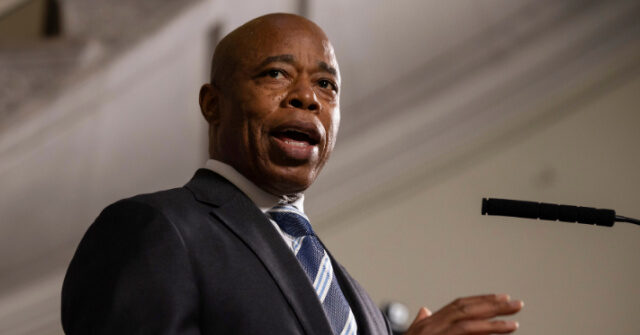New York City Mayor Eric Adams has made headlines with his decision to terminate a $53 million program providing free debit cards to migrants, coinciding with the recent electoral victory of President-elect Donald Trump, who has campaigned on a stricter immigration platform. The program, introduced in February, was intended to offer financial independence to undocumented migrants by allowing them to purchase their own necessities, particularly food, while claiming that it would ultimately save the city money. Adams initially framed this initiative as a means to ease the financial burden on city resources, but its abrupt cancellation has raised questions about the underlying motives and effectiveness of such policies.
Initially launched as a pilot program, the debit card initiative involved a no-bid contract with Mobility Capital Finance, allowing 500 migrant families to receive prepaid cards while residing in city-funded hotel accommodations at no charge. By mid-2023, the program had expanded to include an additional 7,000 migrants, costing taxpayers an extra $2.6 million. However, the recent announcement of the program’s discontinuation has surprised many, particularly as Adams shifts focus to “more competitive contracting” for asylum seeker support. Critics of the program argue that it reflects a troubling pattern of financial mismanagement and unsustainable spending on migrant assistance.
Adams’ administration has not provided a concrete rationale for the sudden cessation of the debit card program after previously praising its potential benefits, including the reduction of food waste and overall cost savings. The abrupt cancellation has sparked speculation about possible political and economic pressures influencing his decision-making. Critics warn that the administration is struggling to manage the influx of migrants, which has increasingly strained the city’s resources and budget. The mayor’s earlier confidence in the initiative now stands in stark contrast to the decision to withdraw support as the political climate continues to transform.
The decision to end the program reflects broader criticisms surrounding Mayor Adams’ handling of the migrant crisis in New York City. Economic challenges exacerbated by the pandemic, high living costs, and an influx of migrants have tested the city’s social services and support systems. Recently, the city comptroller intervened by revoking the administration’s power to enter into emergency contracts for migrant services, which indicates a growing concern regarding fiscal responsibility and accountability within the city’s handling of the ongoing immigration situation.
As the situation evolves, the future of migrant assistance programs remains uncertain amidst the political tension and financial scrutiny faced by the Adams administration. With the upcoming presidential election and shifts in public sentiment towards migration, New York City’s policies will likely undergo further examination. City officials and residents are left grappling with the implications of these changes, as the mayor’s decisions could either exacerbate or alleviate the challenges faced by local communities.
In conclusion, Mayor Adams’ decision to terminate the debit card program has not only raised eyebrows but also highlighted the complexities and challenges of managing a city grappling with a migrant crisis. Moving forward, effective strategies will be crucial in addressing the needs of both migrants and the city’s residents. As the political landscape shifts, further evaluations of fiscal policies and migrant support initiatives will play a key role in determining how New York City navigates its future as a sanctuary and refuge for individuals seeking a better life. Whether this latest decision represents a pragmatic shift or a reluctant response to mounting pressures remains to be seen as the mayor’s administration continues to adapt to evolving circumstances.

